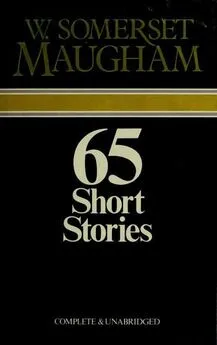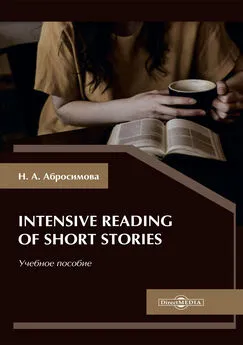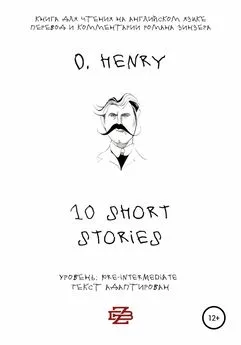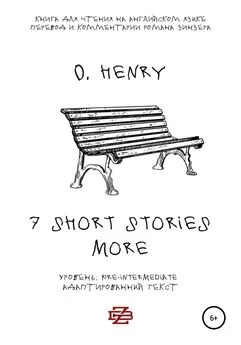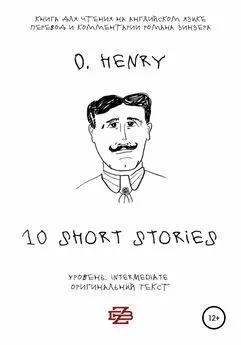Somerset Maugham - Sixty-Five Short Stories
- Название:Sixty-Five Short Stories
- Автор:
- Жанр:
- Издательство:неизвестно
- Год:неизвестен
- ISBN:нет данных
- Рейтинг:
- Избранное:Добавить в избранное
-
Отзывы:
-
Ваша оценка:
Somerset Maugham - Sixty-Five Short Stories краткое содержание
Sixty-Five Short Stories - читать онлайн бесплатно полную версию (весь текст целиком)
Интервал:
Закладка:
He finished his dinner before me. He got up, but on his way out stopped at my table. He stretched out his hand.
'How d'you do?' he said. 'I didn't recognize you when you first came in. I wasn't meaning to cut you.'
He spoke in a pleasant voice with the tones cultivated at Oxford and copied by many who have never been there. It was evident that he knew me and evident too that he had no notion that I did not also know him. I had risen and since he was a good deal taller than I he looked down on me. He held himself with a sort of languor. He stooped a little, which added to the impression he gave me of having about him an air that was vaguely apologetic. His manner was a trifle condescending and at the same time a trifle shy.
'Won't you come and have your coffee with me?' he said. 'I'm quite alone.'
'Yes, I shall be glad to.'
He left me and I still had no notion who he was or where I had met him. I had noticed one curious thing about him. Not once during the few sentences we exchanged, when we shook hands, or when with a nod he left me, did even the suspicion of a smile cross his face. Seeing him more closely I observed that he was in his way good-looking; his features were regular, his grey eyes were handsome, he had a slim figure; but it was a way that I found uninteresting. A silly woman would say he looked romantic. He reminded you of one of the knights of Burne-Jones though he was on a larger scale and there was no suggestion that he suffered from the chronic colitis that afflicted those unfortunate creatures. He was the sort of man whom you expected to look wonderful in fancy dress till you saw him in it and then you found that he looked absurd.
Presently I finished my dinner and went into the lounge. He was sitting in a large arm-chair and when he saw me he called a waiter. I sat down. The waiter came up and he ordered coffee and liqueurs. He spoke Italian very well. I was wondering by what means I could find out who he was without offending him. People are always a little disconcerted when you do not recognize them, they are so important to themselves, it is a shock to discover of what small importance they are to others. The excellence of his Italian recalled him to me. I remembered who he was and remembered at the same time that I did not like him. His name was Humphrey Carruthers. He was in the Foreign Office and he had a position of some importance. He was in charge of I know not what department. He had been attached to various embassies and I supposed that a sojourn in Rome accounted for his idiomatic Italian. It was stupid of me not to have seen at once that he was connected with the diplomatic service. He had all the marks of the profession. He had the supercilious courtesy that is so well calculated to put up the backs of the general public and the aloofness due to the consciousness the diplomat has that he is not as other men are, joined with the shyness occasioned by his uneasy feeling that other men do not quite realize it. I had known Carruthers for a good many years, but had met him infrequently, at luncheon-parties where I said no more than how do you do to him and at the opera where he gave me a cool nod. He was generally thought intelligent; he was certainly cultured. He could talk of all the right things. It was inexcusable of me not to have remembered him, for he had lately acquired a very considerable reputation as a writer of short stories. They had appeared first in one or other of those magazines that are founded now and then by well-disposed persons to give the intelligent reader something worthy of his attention and that die when their proprietors have lost as much money as they want to; and in their discreet and handsomely printed pages had excited as much attention as an exiguous circulation permitted. Then they were published in book form. They created a sensation. I have seldom read such unanimous praise in the weekly papers. Most of them gave the book a column and the Literary Supplement of The Times reviewed it not among the common ruck of novels but in a place by itself cheek by jowl with the memoirs of a distinguished statesman. The critics welcomed Humphrey Carruthers as a new star in the firmament. They praised his distinction, his subtlety, his delicate irony, and his insight. They praised his style, his sense of beauty, and his atmosphere. Here at last was a writer who had raised the short story from the depths into which in English-speaking countries it had fallen and here was work to which an Englishman could point with pride; it bore comparison with the best compositions in this manner of Finland, Russia, and Czecho-Slovakia.
Three years later Humphrey Carruthers brought out his second book and the critics commented on the interval with satisfaction. Here was no hack prostituting his talent for money! The praise it received was perhaps a little cooler than that which welcomed his first volume, the critics had had time to collect themselves, but it was enthusiastic enough to have delighted any common writer who earns his living by his pen and there was no doubt that his position in the world of letters was secure and honourable. The story that attracted most commendation was called The Shaving Mop and all the best critics pointed out with what beauty the author in three or four pages had laid bare the tragic soul of a barber's assistant.
But his best-known story, which was also his longest, was called Week End. It gave its title to his first book. It narrated the adventures of a number of people who left Paddington Station on Saturday afternoon to stay with friends at Taplow and on Monday morning returned to London. It was so delicate that it was a little difficult to know exactly what happened. A young man, parliamentary secretary to a Cabinet Minister, very nearly proposed to a baronet's daughter, but didn't. Two or three others went on the river in a punt. They all talked a great deal in an allusive way, but none of them ever finished a sentence and what they meant was very subtly indicated by dots and dashes. There were a good many descriptions of flowers in the garden and a sensitive picture of the Thames under the rain. It was all seen through the eyes of the German governess and everyone agreed that Carruthers had conveyed her outlook on the situation with quite delicious humour.
I read both Humphrey Carruthers's books. I think it part of the writer's business to make himself aware of what is being written by his contemporaries. I am very willing to learn and I thought I might discover in them something that would be useful to me. I was disappointed. I like a story to have a beginning, a middle, and an end. I have a weakness for a point. I think atmosphere is all very well, but atmosphere without anything else is like a frame without a picture; it has not much significance. But it may be that I could not see the merit of Humphrey Carruthers on account of defects in myself, and if I have described his two most successful stories without enthusiasm the cause perhaps lies in my own wounded vanity. For I was perfectly conscious that Humphrey Carruthers looked upon me as a writer of no account. I am convinced that he had never read a word I had written. The popularity I enjoyed was sufficient to persuade him that there was no occasion for him to give me any of his attention. For a moment, such was the stir he created, it looked as though he might himself be faced with that ignominy, but it soon appeared that his exquisite work was above the heads of the public. One can never tell how large the intelligentsia is, but one can tell fairly well how many of its members are prepared to pay money to patronize the arts they cherish. The plays that are of too fine a quality to attract the patrons of the commercial theatre can count on an audience of ten thousand, and the books that demand from their readers more comprehension than can be expected from the common herd sell twelve hundred copies. For the intelligentsia, notwithstanding their sensitiveness to beauty, prefer to go to the theatre on the nod and to get a book from the library.
I am sure this did not distress Carruthers. He was an artist. He was also a clerk in the Foreign Office. His reputation as a writer was distinguished; he was not interested in the vulgar, and to sell well would possibly have damaged his career. I could not surmise what had induced him to invite me to have coffee with him. It is true he was alone, but I should have supposed he found his thoughts excellent company, and I could not believe he imagined that I had anything to say that would interest him. Nevertheless I could not but see that he was doing his dreary best to be affable. He reminded me of where we had last met and we talked for a moment of common friends in London. He asked me how I came to be in Rome at this season and I told him. He volunteered the information that he had arrived that morning from Brindisi. Our conversation did not go easily and I made up my mind that as soon as I civilly could I would get up and leave him. But presently I had an odd sensation, I hardly know what caused it, that he was conscious of this and was desperately anxious not to give me the opportunity. I was surprised. I gathered my wits about me. I noticed that whenever I paused he broke in with a new topic. He was trying to find something to interest me so that I should stay. He was straining every nerve to be agreeable. Surely he could not be lonely; with his diplomatic connexions he must know plenty of people with whom he could have spent the evening. I wondered indeed that he was not dining at the Embassy; even though it was summer there must be someone there he knew. I noticed also that he never smiled. He talked with a sort of harsh eagerness as though he were afraid of a moment's silence and the sound of his voice shut out of his mind something that tortured him. It was very strange. Though I did not like him, though he meant nothing to me and to be with him irked me somewhat, I was against my will a trifle interested. I gave him a searching glance. I wondered if it was my fancy that I saw in those pale eyes of his the cowed look of a hunted dog and, notwithstanding his neat features and his expression so civilly controlled, in his aspect something that suggested the grimace of a soul in pain. I could not understand. A dozen absurd notions flashed through my mind. I was not particularly sympathetic: like an old war horse scenting the fray I roused myself. I had been feeling very tired, but now I grew alert. My sensibilities put out tentacles. I was suddenly alive to every expression of his face and every gesture. I put aside the thought that had come to me that he had written a play and wanted my advice. These exquisite persons succumb strangely to the glamour of the footlights and they are not averse from getting a few tips from the craftsman whose competence they superciliously despise. No, it was not that. A single man in Rome, of aesthetic leanings, is liable to get into trouble, and I asked myself whether Carruthers had got into some difficulty to extricate himself from which the Embassy was the last place he could go to. The idealist, I have noticed, is apt at times to be imprudent in the affairs of the flesh. He sometimes finds love in places which the police inconveniently visit. I tittered in my heart. Even the gods laugh when a prig is caught in an equivocal situation.
Suddenly Carruthers said something that staggered me.
'I'm so desperately unhappy,' he muttered.
He said it without warning. He obviously meant it. There was in his tone a sort of gasp. It might very well have been a sob. I cannot describe what a shock it was to me to hear him say those words. I felt as you do when you turn a corner of the street and on a sudden a great blast of wind meets you, takes your breath away, and nearly blows you off your feet. It was so unexpected. After all
Читать дальшеИнтервал:
Закладка:
